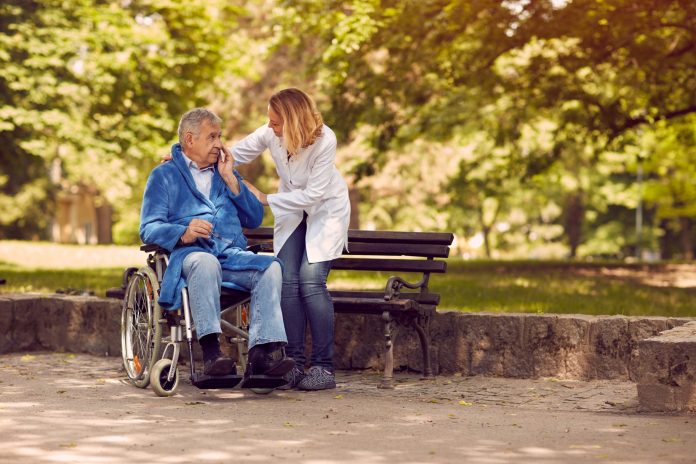Media Release
The widespread social and economic impacts of the COVID-19 pandemic are significantly affecting the health and wellbeing of Australia’s 2.8 million carers, who care for a family member or friend, according to evidence released last week by Carers NSW.
Carers are experiencing critical levels of stress and additional pressures due to an increase in caring responsibilities, along with the loss of social supports, reduced access to services, unstable finances and employment and often limited access to technology, when many medical appointments have been moved online.
Carers NSW, along with the Network of Carers Associations across Australia have conducted consultations and research with carers about the impacts of COVID-19 and reviewed the evidence across Australia, the UK, Ireland and the USA.
The evidence highlights the increasing challenges for carers during the COVID-19 pandemic with impacts on their health and wellbeing, increased responsibilities in their caring role, reduced access to services and suitable technology, as well as impacts on education, employment and finances.
Carers NSW, CEO, Elena Katrakis, says the findings show that carers face adverse impacts on their mental health and stress levels of both themselves and the people they care for, plus increased isolation due to the pandemic.
“Carers are also experiencing physical health challenges due to COVID-19, including changed sleep patterns, reduced access to health services and face-to-face medical treatment and delayed access to health interventions, such as surgery,” says Ms Katrakis.
The leading challenge for carers in their caring role has been the increase in the number of hours of care and intensity of care they are providing.
This was followed by the inability of many carers to visit those they are caring for due to restrictions in place at aged care facilities and hospitals and self-isolation protocols recommended to protect high-risk individuals.
These restrictions also mean informal supports, such as friends and relatives, are no longer able to be called upon to assist in providing support.
A lack of clear, accessible, carer-inclusive information on social distancing rules and hygiene advice was also highlighted as a key issue in the report, as was the challenge of caring for someone who was in a high-risk health or age category.
Some carers were also in high-risk categories themselves.
Evidence shows carers are financially impacted by COVID-19 and have difficulty accessing essential items, including groceries and medication, plus an overall increase in basic living expenses.
This includes costs associated with acquiring and setting up IT equipment and an adequate internet connection to successfully access medical and support services, maintain social contacts and undertake work and study commitments.
Many carers, like other members of their communities, experienced reduced employment and income.
Those that were able to work from home faced the challenges of balancing caring roles, employment and schooling in crowded households, causing significant stress for many carers.
“The existing inequalities for carers regarding digital access, affordability and literacy have increased during the COVID-19 pandemic.
“The sudden reliance on technology for social connection, medical appointments, therapies, and caring has further disadvantaged some carers and the person(s) they care for,” adds Ms Katrakis.
Recommendations for governments and communities to help reduce critical levels of carer stress, include:
- Recognise and include carers in official messaging.
- Provide information, training and protective equipment to assist carers to care safely in the home and community while reducing transmission risk.
- Provide flexible financial assistance to carers with increased expenses and reduced income.
- Improve access to affordable, quality mental health care.
- Help carers adjust to a digital service environment.
- Enable ongoing connection with friends and family, and with safe recreational activities that support health and wellbeing.
- Offer flexibility and support to students, parents of school children with disability, and workers juggling multiple responsibilities.
The COVID-19 and carers – A Review of the Evidence briefing is available on the Carers NSW website here.
This release coincides with a new report, The value of informal care in 2020 by Deloitte Access Economics, commissioned by Carers Australia, which confirms the estimated annual replacement value of all unpaid care in Australia has risen to $77.9 billion – an increase of 29% since similar research was conducted in 2015. This report also estimates the number of informal carers in Australia has increased to 2.8 million.
Carers can access support services through Carer Gateway by calling 1800 422 737 or visiting carergateway.gov.au.
Text by: Carers NSW
Read more click here









